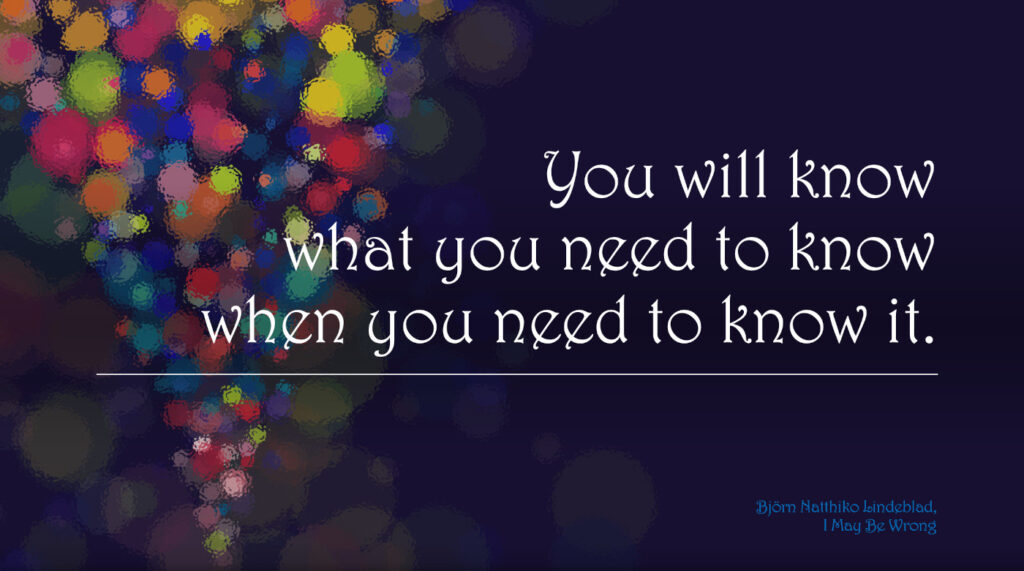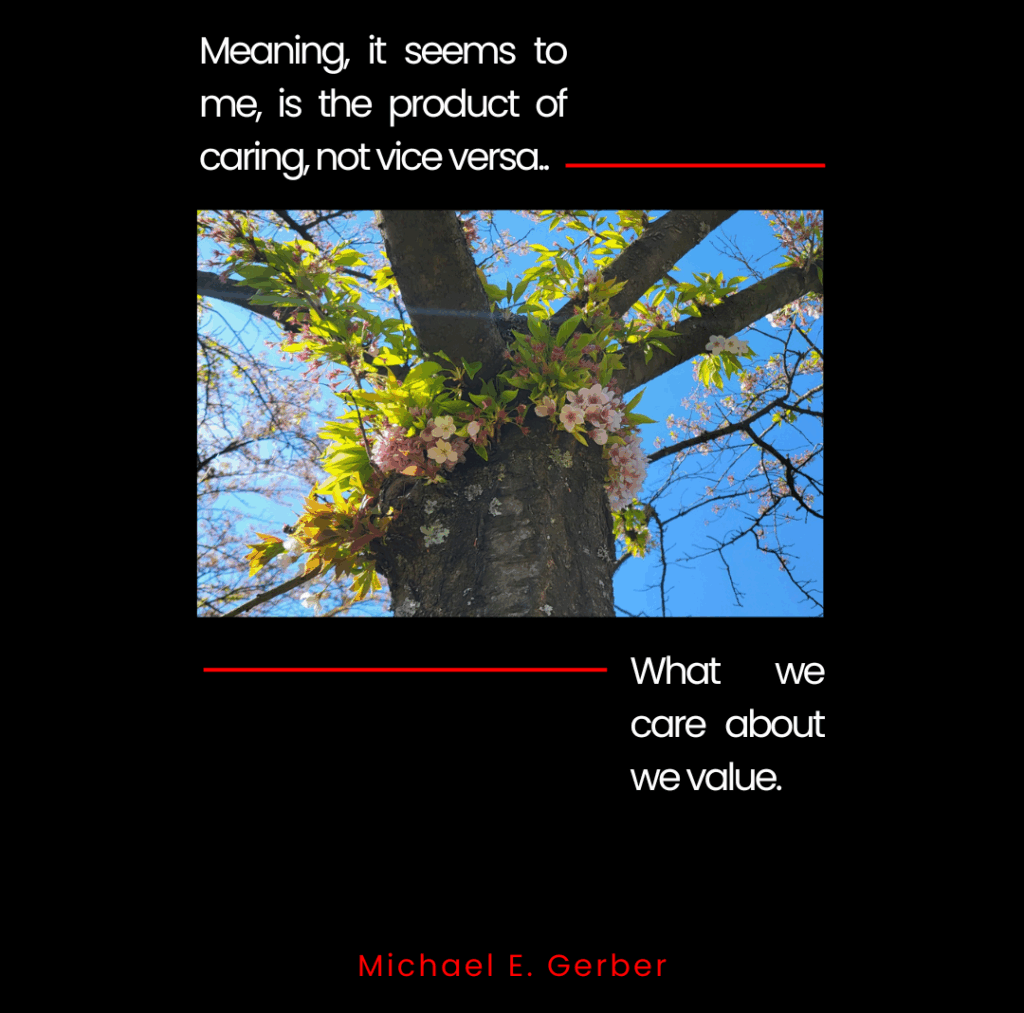I just finished reading The E-Myth Revisited by Michael E. Gerber. I must have had this book on my virtual shelf for years. Somebody once recommended it to me and then it just got sidelined by whatever was going on at the time, by other books that appeared on my radar and seemed more urgent, and so it just sat there. It’s funny how life flows this way. Now was a perfect time to read it. Not because I’m starting a business, but because it merges beautifully with several perspectives and concepts I’ve been thinking about these last few months.

There are synopses available in the www that outline the book’s main points and principles. So, I won’t go there. One thing I will state is that I don’t remember ever coming across such a neat and compelling breakdown of:
- the core characteristics of the person(s) starting a business,
- how to think about starting a business and
- how to approach running a scalable business.
The system runs the business. The people run the system.
Not that I’ve ever done any deep research. Over the years, though, I’ve consumed plenty entrepreneurial evening classes, workshops, books, articles and so on to get some sort of business education. On the one hand, Gerber’s book offered no surprises in that regard. On the other hand, the way it is all packaged just made sense. The narrative shows how it all hangs together and why. Even more so, it suggests how all of the practical methodology can be an expression of the founders dearest values. Just because a business follows process and procedure, does not mean that there is no creativity and soul in it. Quite the opposite, if genuine values are to be lived consistently, the founder’s heart and soul will shape and evolve the business’ image, strategy, standard operating procedures and other practices to a degree that it can fulfil its intended purpose even without the founder’s involvement eventually. There is the thing for which the customer pays money, but what they really get is an expression of the company’s core values.
On a side note, the book emphasises its focus on US American small business. However, it does not define “small” and draws on examples from multinational giants. In the end, any business starts small and, if so desired and designed well enough, can scale. I’d also venture to say that Gerber’s advice is not confined by geography.
The two chapters that truly blended with my other recent readings and musings are at the end of the book:
- Chapter 19: A letter to Sarah and
- the Epilogue.
There Gerber speaks about meaning and purpose in a much wider context than the commercial venture.
Reading the letter, it no longer seemed a random choice that Gerber takes us on Sarah’s pie shop journey throughout the book. In a neatly flowing narrative he brings it all home somewhat philosophically in those final chapters.

The logical connection being that without setting the business up for success, the founder’s values won’t come to life. They have no chance of percolating down through the way things are done, the qualities of the service or commodity that is being delivered or the way staff treat each other, customers and other stakeholders. Consequently, they have little chance of exerting any noticeable impact in the neighbourhood or other community that is an extension to the business or within its circle of influence.
Gerber also warns that initial enthusiasm and discipline might decline – even if the founder is doing everything by the book and reaping the benefits.
[Your Comfort Zone] knows how much you want to be comfortable. Because it knows what price you are willing to pay for the comfort of being in control. The ultimate price, your life.
Gerber continues on by taking the message of the book into a far wider context – us all, society. We live in a world in which the rules seem to change constantly. We delude ourselves with proclamations of this being the Information Age, the Age of AI and whatnot. What I see is an Age of Confusion. Driven by animalistic imprints, we are moving further and further away from achieving the true human potential.
The world’s not the problem; you and I are.
The world’s not in chaos; we are.
The world’s apparent chaos is only a reflection of our own inner turmoil.
So, what are we to do?
We cannot change the world “out there”. Instead, we must begin “in here” as Gerber suggests.
And that’s what this book is really about. Bridging the gap.
Between the “outside” and the “inside.”
Between the world “out there” and the world “in here.”
And your small business can become that bridge.